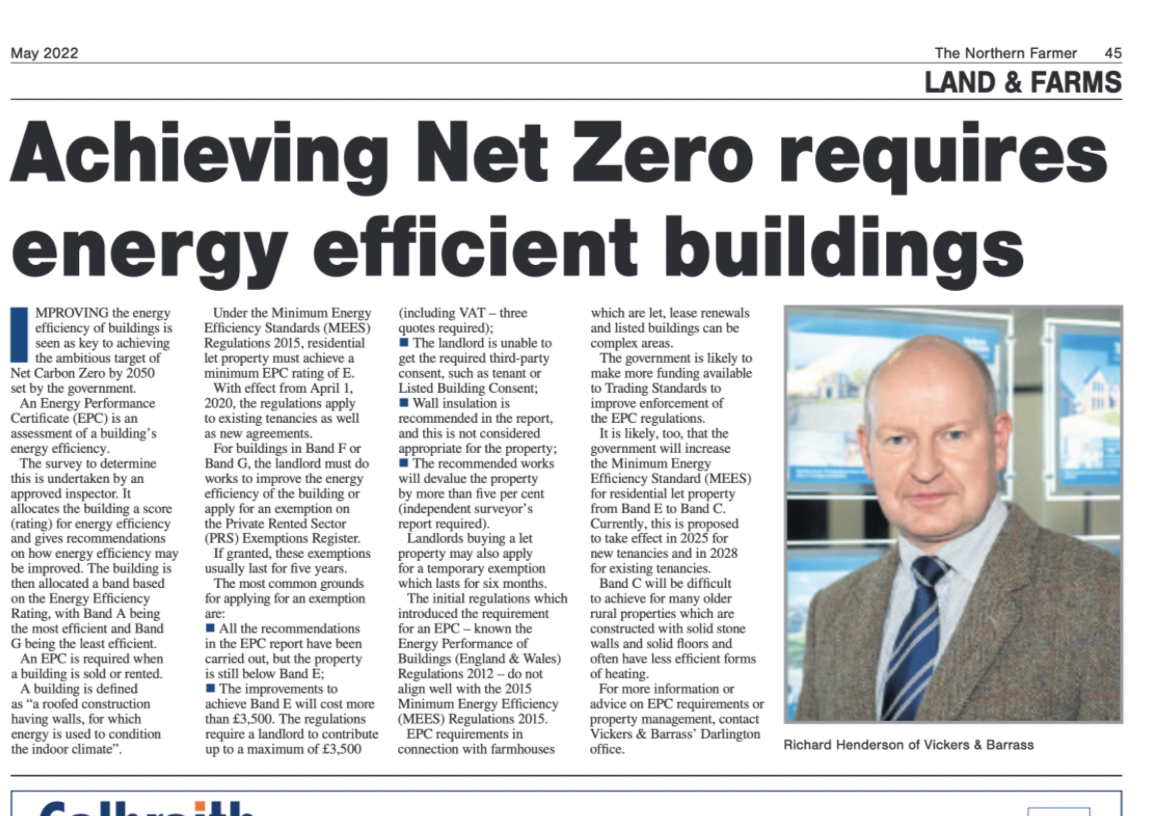The government has set an ambitious target of Net Carbon Zero by 2050. Improving the energy efficiency of buildings is seen as key to achieving this. An Energy Performance Certificate (EPC) is an assessment of a building’s energy efficiency. The survey is undertaken by an approved inspector and allocates the building a score (Rating) for energy efficiency and gives recommendations on how energy efficiency may be improved. The building is then allocated a band based upon the Energy Efficiency Rating (Band A being the most efficient and Band G being the least efficient).
An EPC is required when a building is sold or rented. Building is defined as “a roofed construction having walls, for which energy is used to condition the indoor climate.” Under the Minimum Energy Efficiency Standards (MEES) Regulations 2015, residential let property must achieve a minimum EPC rating of E. With effect from the 1 st of April 2020 the regulations apply to existing tenancies as well as new agreements. For buildings in Band F or Band G the landlord must do works to improve the energy efficiency of the building or apply for an exemption. A Landlord may apply for an exemption on the Private Rented Sector (PRS) Exemptions Register. Exemptions usually last for 5 years and the most common grounds for applying for an exemption are:
(i) All the recommendations in the EPC report have been carried out but the property is still
below Band E.
(ii) The improvements to achieve Band E will cost more than £3,500. The regulations require
a landlord to contribute up to a maximum of £3,500 (including VAT – 3 quotes required).
(iii) The landlord is unable to get the required third-party consent e.g., tenant or Listed
Building Consent.
(iv) Wall insulation is recommended in the report, and this is not considered appropriate for
the property.
(v) The recommended works will de-value the property by more than 5% (independent
surveyors report required).
Landlords buying a let property may also apply for a temporary (6 months) exemption. The initial regulations which introduced the requirement for an EPC – known the Energy Performance of Buildings (England & Wales) Regulations 2012 do not align well with the 2015 Minimum Energy Efficiency (MEES) Regulations 2015. EPC requirements in connection with let farmhouses, lease renewals and listed buildings can be complex areas.
So what can we expect in the future?
The government is likely to make more funding available to Trading Standards to improve enforcement of the EPC regulations. It is likely the government will increase the Minimum Energy Efficiency Standard (MEES) for residential let property from Band E to Band C. Currently, this is proposed to take effect in 2025 for new tenancies and 2028 for existing tenancies. Band C will be difficult to achieve for many older
rural properties which are constructed with solid stone walls, solid floors and often have less efficient forms of heating.
For further information or advice regarding EPC requirements or property management please contact Richard Henderson, Vickers & Barrass at our Darlington office, 01388 728084.





